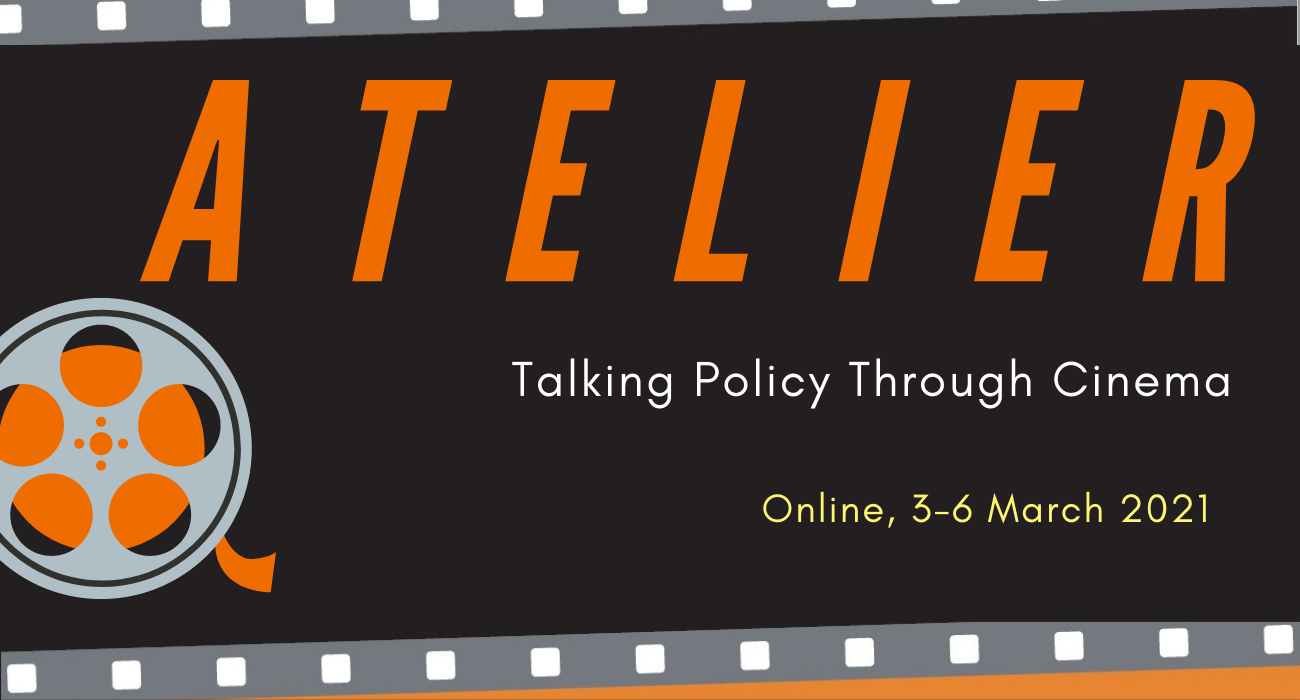
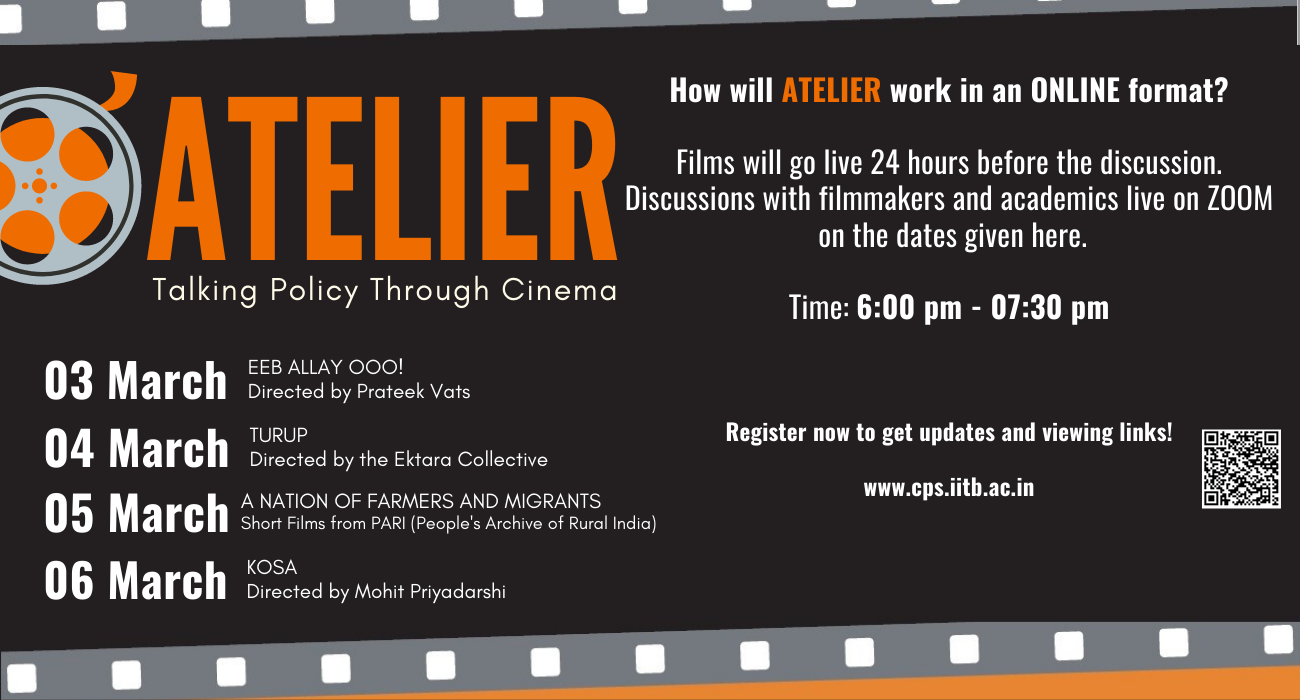
Atelier 2021: Talking Policy Through Cinema
The Centre for Policy Studies is delighted to bring you the second (and fully online) edition of Atelier: Talking Policy Through Cinema.
Save The Date: 3 – 6 March 2021
About the films
Eeb Allay Ooo (dir. Prateek Vats)
Eeb – allay – ooo! These are the three vocables used by “monkey repellers” to drive away the nettlesome rhesus macaques that beg for food from tourists in front of Delhi’s government buildings. This 2019 film is directed by Prateek Vats, in his directorial debut, and written by Shubham. The film follows the absurd and at times outright farcical journey of Anjani, a young migrant who is hired to shoo away monkeys from government offices by mimicking aggressive langurs – their natural enemies. The struggles and misadventures of Anjani become the lens to examine the realities and contradictions of contemporary India. The underside of a farce, after all, is its involuntary participants.
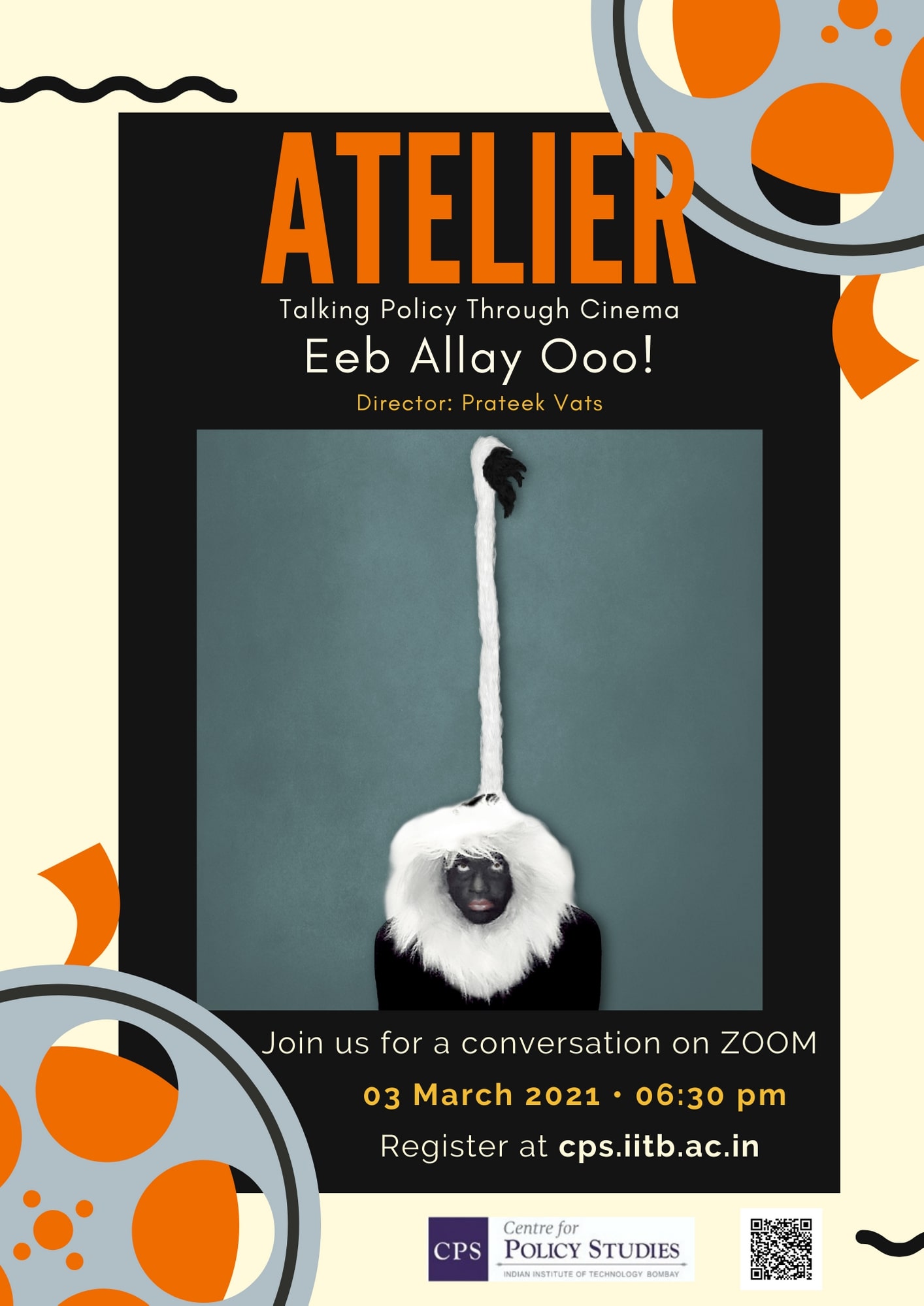
About the Speakers
Shubham
Shubham is a film and theatre artist based in Mumbai. A graduate in film acting from
FTII, his work in films has been showcased at some of the leading film festivals like
Venice and Karlovy Vary amongst other national and international platforms. He is the
co-founder of Push and Pull Theatre, a group based between Delhi and Mumbai.
Eeb Allay Ooo! is his first feature length film as a writer. He is also credited as the
Associate Director of the film.
Recently, Shubham wrote a short film, “Vishanu”, for Amazon Prime anthology,
“Unpaused”.
Himanshu
Himanshu is Associate Professor in Economics at the Centre for Economic Studies and
Planning, School of Social Sciences, Jawaharlal Nehru University. He is also visiting fellow
at Centre de Sciences Humaines, New Delhi. His primary area of research is
development economics with focus on issues related to poverty, inequality,
employment, food security, rural development and agrarian change. His current
research interests revolve around poverty and inequality in India, structural change and
changing pattern of employment and livelihood in rural India.
His recent publications include “How Lives Change: Palanpur, India and Development
Economics” with Nicholas Stern and Peter Lanjouw, published by Oxford University
Press, London (2018). The book is based on the longest longitudinal survey of a village
Palanpur, a village in western Uttar Pradesh which has been surveyed intensively seven
times starting from the first survey in 1957-58.
Himanshu is a regular contributor to various media publications including television. He
writes a fortnightly column on issues related to development in MINT newspaper.
Turup (dir. Ektara Collective)
In the neighborhood, chess is a popular pass time with roadside games bringing together men from different strata. Their pawns include morality and religion, causing social and political tensions to erupt when a tournament gets underway. But the men are only the most visible players. Against this simmering backdrop, a domestic worker with a secret hobby, a young woman in love and a former journalist struggling with married life must make their moves with care. When caste, class, religion and gender come into play, there are boundaries to be negotiated, and the very rules of the game stand challenged.
This film has been made collectively by Ektara Collective over a period of a year. It was made along with the residents of different working class settlements living in Bhopal, Madhya Pradesh, India. All of the cast and much of the crew were from the settlements. Other technical and non-technical people came from across the country to become a part of the film.
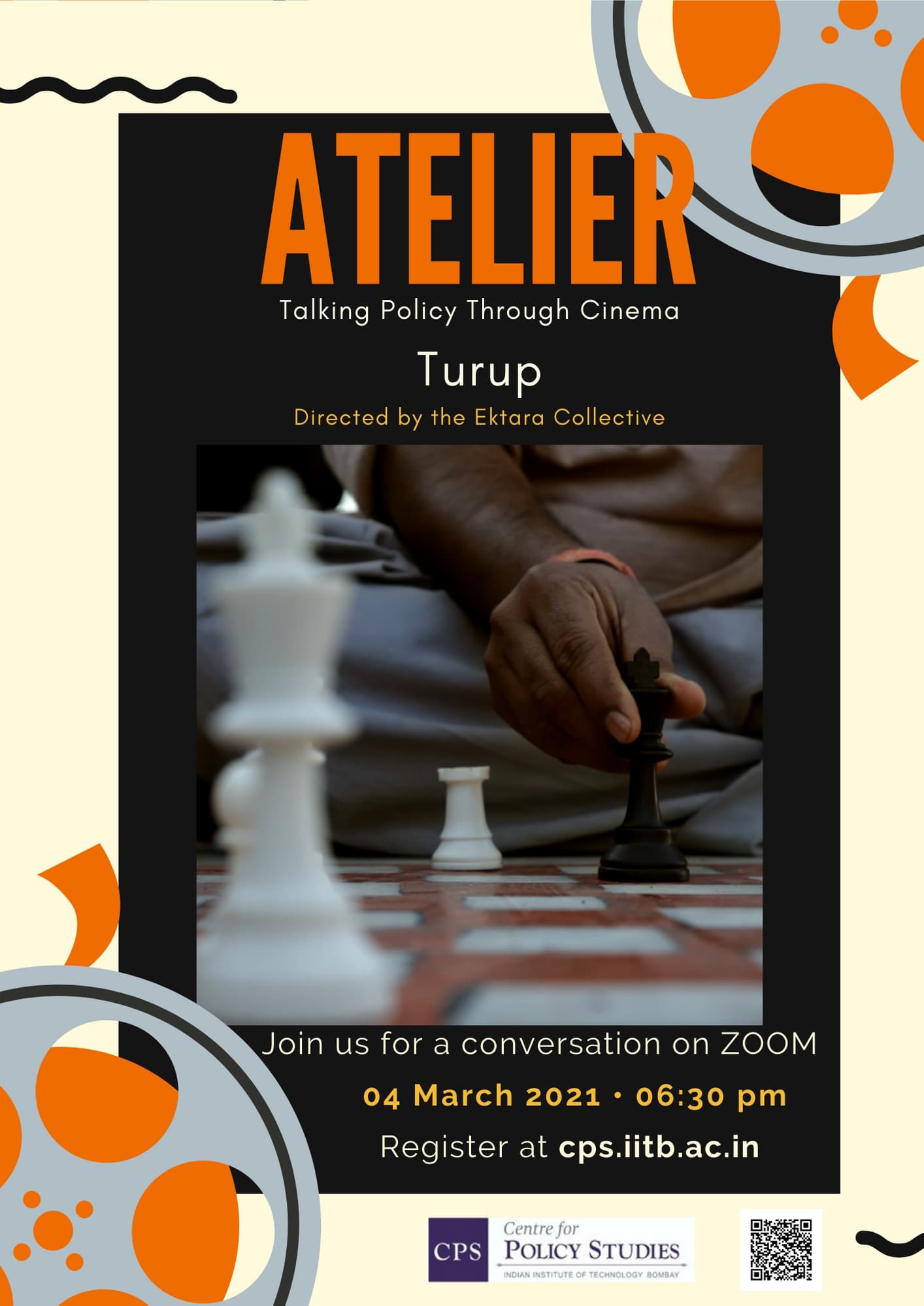
About the Speakers
Ektara Collective
Ektara Collective is an independent, autonomous, non-funded group which seeks to
combine creative efforts and imagination, collaborating with trained and untrained
people to make films that are aesthetically and content-wise located in the subjective
and contextual realities and experiences of these people. Through this process, Ektara
has made and produced two short fiction films, “Chanda Ke Joote” (2011), and “Jaadui
Machchi” (2013). “Turup” is the Collective’s first feature film.
Geeta Seshu
Geeta Seshu is an independent journalist engaged in reporting and analysing media
issues, in particular on freedom of expression, media ethics, media ownership and
working conditions of journalists. She is co-Editor of the Free Speech Collective, set up in
2018 to protect the right to freedom of expression and vigorously promote free speech
and the right to dissent. Geeta was a Senior Research Fellow of the Awa Wadia Archives
for Women and, was involved in archiving the campaign against sex-determination of
the Forum Against Sex Determination and Sex Pre-selection (FASDSP) in 2010. She also
contributes to various academic publications on media issues.
Geeta was a member of UNESCO’s Media Freedom Committee, India, formed in 2016 to
promote freedom of information and freedom of expression, pluralism, diversity and
inclusivity in the ownership and content of media in India.
She helms Vividha, a non-profit initiative to bring alive literature, narratives, testimonies
and campaigns in diverse media, and produces its bi-lingual publication. Geeta made an
oral history film ‘Sabita Goswami: A Journalist remembers’ on the life and work of the
acclaimed Assamese journalist.
A Nation of Farmers and Migrants (dir. PARI)
A package of short films from the People’s Archive of Rural India (PARI). PARI is both a living journal and an archive. It generates and hosts reporting on the countryside that is current and contemporary, while also creating a database of already published stories, reports, videos and audios from as many sources as possible. PARI’s focus in on sharing stories of the everyday lives of everyday people. It aims to create a public resource which records the lives of Indian people in their own voices, in their own languages.
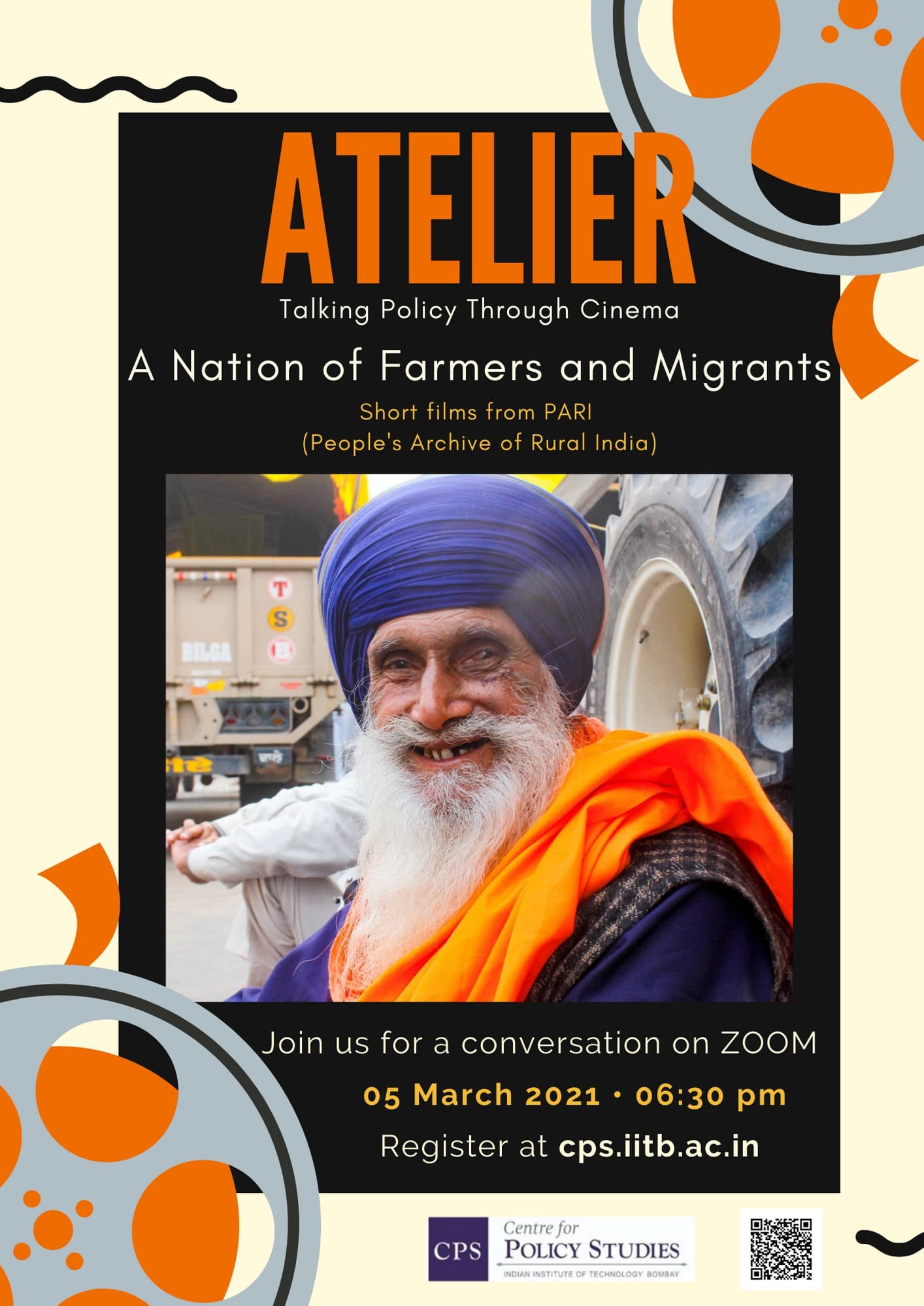
About the Speakers
P. Sainath
P. Sainath is a former journalist whose work has focused on social and economic
inequality, rural affairs, poverty and the aftermath of globalization in India. He is the
founder editor of the PARI (People’s Archive of Rural India), and the recipient of the
Ramon Magsaysay Award, which he accepted in 2007 in the category of Journalism,
Literature and Creative Communication Arts. He is the author of the landmark book
“Everybody Loves a Good Drought”.
Kosa (dir. Mohit Priyadarshi)
Kosa is a young boy who lives with his family in the forest heartlands of India. One day, he is picked up by the police. The charge? Kosa’s name is similar to that of a Maoist commander. Will the farcical trial that follows prove his innocence or confirm he’s a criminal? The film is a scathing attack on the oppressive and abusive powers displayed by police and local government towards the tribal communities living in the Indian forests, detailing how this unchecked power can be distorted for tyrannical means, and how other institutions like the media the judiciary are able to hold power to account.
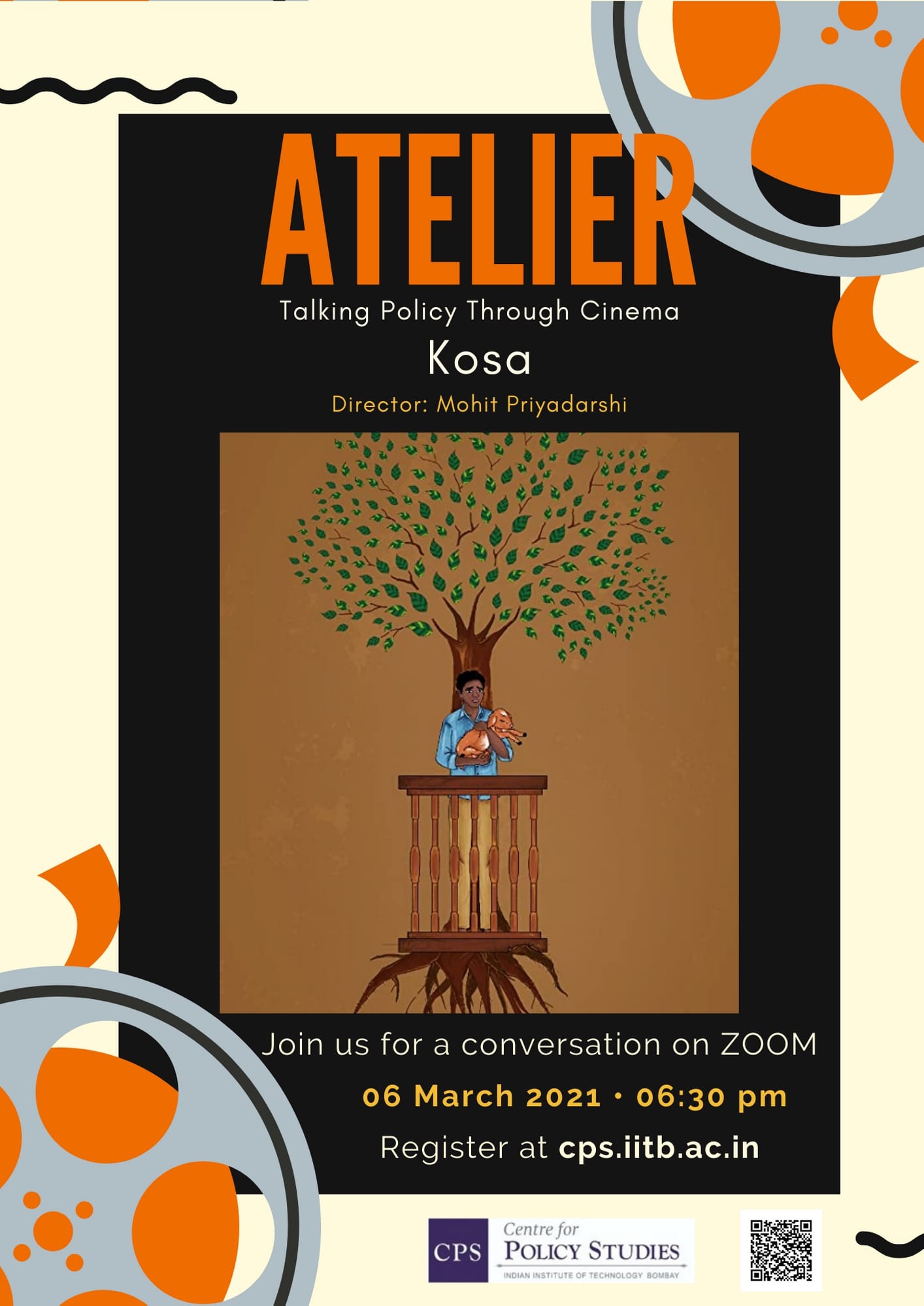
About the Speakers
Mohit Priyadarshi
Mohit Priyadarshi is a writer and director whose deep passion for storytelling and love
for films pushed him to co-create Whispering Walls Films with the help of his committed
colleagues and friends. Mohit studied Cinema Studies at JNU and then studied at FTII.
Kosa is his first film. The film was made without producers but through crowdfunding.
Navdeep Mathur
Navdeep Mathur is Associate Professor in the Public Systems Group at the Indian
Institute of Management Ahmedabad. He was founding co-editor of Critical Policy
Studies (Routledge), and serves on the editorial board of Public Administration and
Development. He conducts research on urbanism, resistance and alternatives to top-
down urban planning and institutional design, and teaches courses on corporate
irresponsibility, social justice, politics of knowledge production, interpretive methods,
and public policy.
Alpa Shah
Alpa Shah teaches in the Department of Anthropology, LSE and also leads the LSE
International Inequalities Institute ‘Global Economies of Care’ research theme. She is
the author of ‘Nightmarch: Among India’s Revolutionary Guerrillas’, winner of the 2020
Association for Political and Legal Anthropology Book Prize, shortlisted for the 2019
Orwell Prize for Political Writing and the New India Foundation Book Prize, and
longlisted for the Tata Literature Live non-fiction book award. She is also the author of
‘In the Shadows of the State’ and co-author of ‘Ground Down by Growth.’ Much of
Alpa’s writing is based on long-term ethnographic research living as a participant
observer among the communities she writes about.
Alpa has reported for BBC Radio 4 and the World Service on several occasions, including
presenting and recording the radio documentary ‘India’s Red Belt’ for Crossing
Continents. She has also co-curated a major photo exhibition, ‘Behind the Indian Boom’.
Screening Protocol
Since Atelier is online this year, it is difficult to replicate the collective experience of watching a film like at a festival while ensuring convenience in access given people’s work-from-home schedules and internet speeds. We have tried to bring together the best of both worlds by organising the discussions with filmmakers and academics live on Zoom and providing screening links to the films 24 hours prior to the discussion. While we may not be able to watch the films together, we can talk about them together!
Below is a more detailed protocol.
If you have any questions, you can write to us at atelier.cps.iitb@gmail.com. You can read more about the first edition here.
